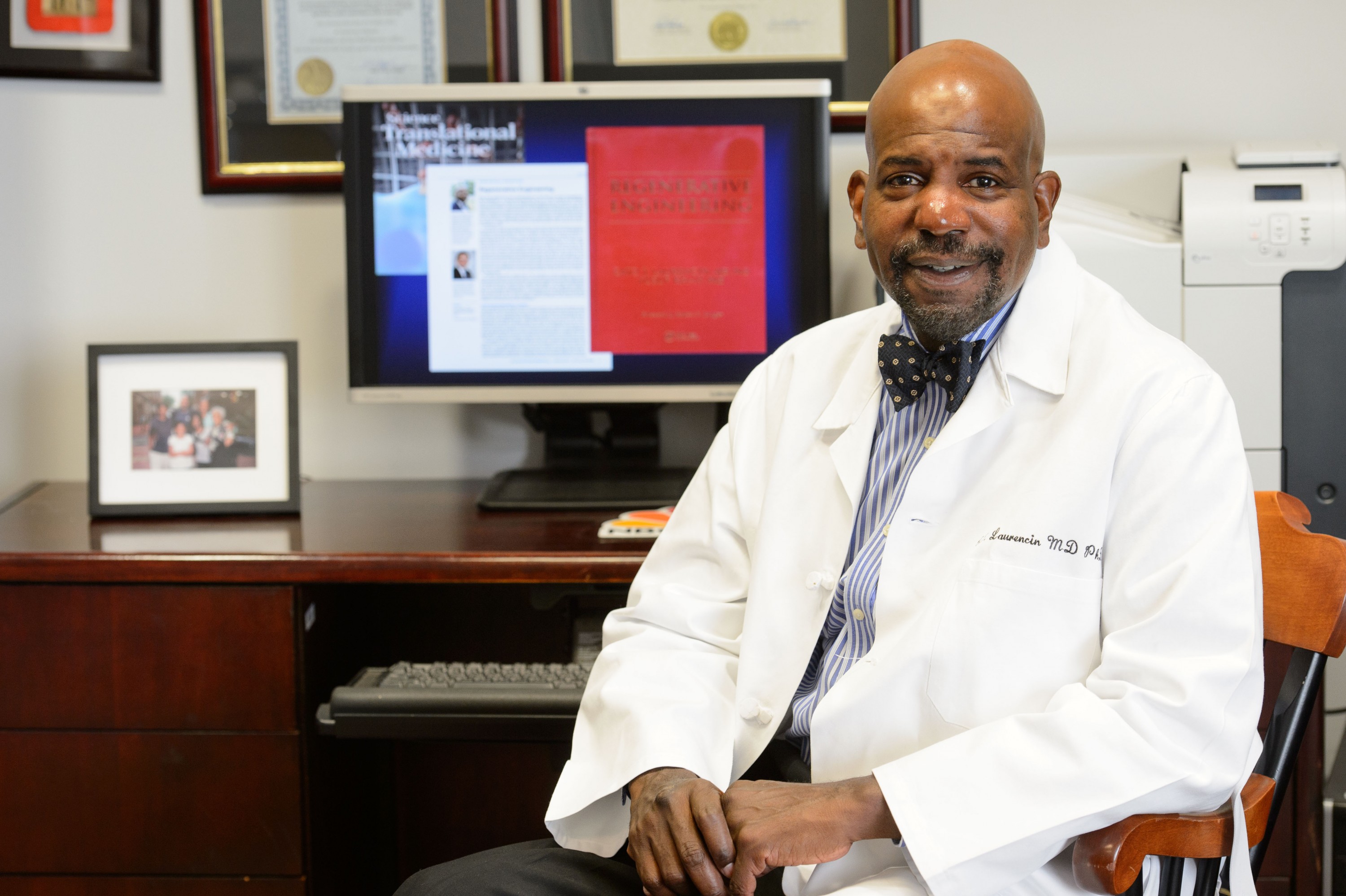In recognition of his pioneering work in the field of regenerative engineering, UConn professor Dr. Cato T. Laurencin has been elected to the prestigious European Academy of Sciences (EURASC).
“It’s very gratifying that a number of different parts of the world consider the work we are doing to be breakthrough,” Laurencin says. “The world is embracing the concepts behind regenerative engineering and has come to realize the importance of this field.”
EURASC is an independent organization comprised of the world’s leading scholars and engineers at the forefront of research. Founded in 2003, its major objective is establishing efficient collaboration among scientists, researchers, educators, engineers, and leaders across to globe to develop policy for solving critical science and technology problems.
Membership is highly selective. New members are peer nominated and the vast majority are from European nations, though there is a small fraction of Americans. Honorary members include dozens of Nobel Prize and Fields Medal recipients, among other honors.
Laurencin is the Albert and Wilda Van Dusen Distinguished Endowed Professor of Orthopedic Surgery at the UConn School of Medicine. His seminal and singular accomplishments in tissue regeneration, biomaterials science, and nanotechnology, and regenerative engineering, a field he founded, have made him the foremost engineer-physician-scientist in the world.
Laurencin also serves as CEO of The Connecticut Convergence Institute for Translation in Regenerative Engineering at UConn Health and professor of chemical engineering, materials science and engineering, and biomedical engineering at UConn.
His breakthrough achievements have resulted in transformative advances in improving human life. Laurencin’s fundamental contributions to materials science and engineering include the introduction of nanotechnology into the biomaterials field for regeneration.
Laurencin will formally be inducted into the European Academy of Sciences during the Academy’s reception in Belgium in October. Last year’s reception was virtual because of the pandemic.
“I am looking forward to meeting my Academy colleagues from throughout the world when we gather in Brussels,” Laurencin said.
EURASC marks Laurencin’s sixteenth membership in a national or international scientific academy, including four in Europe, four in Asia, three in Africa, and five in the United States. This year, in addition to the EURASC, he has been elected into the Academia Europaea, the Senegalese Academy of Science and Technology, the Benin Academy of Science and Arts, and the Indian Academy of Sciences.
Laurencin is the first surgeon in history elected to the National Academy of Sciences, the National Academy of Engineering, the National Academy of Medicine, and the National Academy of Inventors.
In January, the National Association for the Advancement of Colored People held a ceremony with Laurencin and UConn officials celebrating the awarding of the Spingarn Medal, the organization’s highest honor. Laurencin joined the company of such American heroes as Martin Luther King Jr., Maya Angelou, George Washington Carver, Jackie Robinson, Duke Ellington, Charles Drew, and others over the award’s 106-year history.



